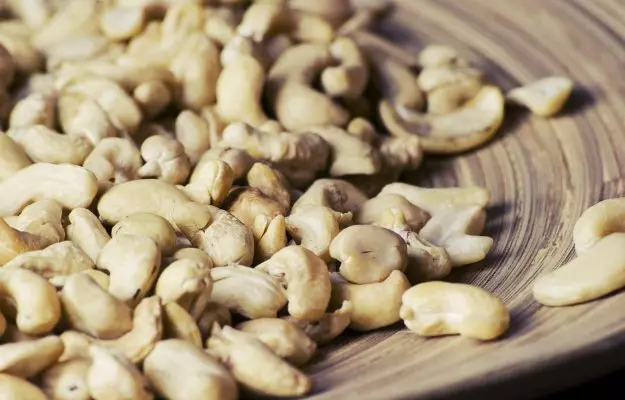Cashew nuts are a native to Brazil and they have been viewed as a delicacy since generations. In recent times, cashews have become well-known throughout the world for their very delicate taste and significant health benefits. However, manufacturers always sell cashews in a shelled state and a part of the shell contains a resin which is harmful for consumption. It is possible to buy raw and roasted cashews and even cashews that have been seasoned with multiple flavourings. They can be consumed as a snack, an addition to salads, smoothies, and other sustenance. With each serving, you can attain numerous health benefits that differentiate them from other nuts.
It is a popular element that found its way to the Indian cuisine. The cashew tree grows to extraordinary heights having an irregular trunk. Large juicy apples hang from the branches and at the bottom of the fruit lies an attached cashew nut. It is available all around the year and due to its great shelf life, it is stored and protected properly. Both the nut and the fruit have various uses. The nut was known as the poor man’s plantation though it is sold for high prices now. Back when nomads had no idea on how to consume the fruit, the nut was thrown away and the fruit was eaten.
Some basic facts about Cashew nuts
- Scientific name: Anacardium Occidentale
- Family: Anacardiaceae
- Common name: cashew kernel, kaju (hindi)
- Sanskrit name: bhallātaka भल्लातक
- Parts used: Almost all parts of the cashew tree have medicinal properties. The kernel, the cashew apple and the leaves are edible.
- Native region and geographical distribution: Cashew nuts originated in north-eastern Brazil and spread into South and Central America. The Portuguese brought it to India and East Africa which then spread to Sri Lanka, Indonesia and Malaysia. In the 17th century, The Spanish took it to the Philippines. At present cashew is cultivated in many tropical countries; the main producers are Brazil, India, Vietnam, Mozambique and Tanzania.
- Interesting facts: The cashew resin is used in industrial products such as paints. It is also found in the car as it is used in brake liners


































